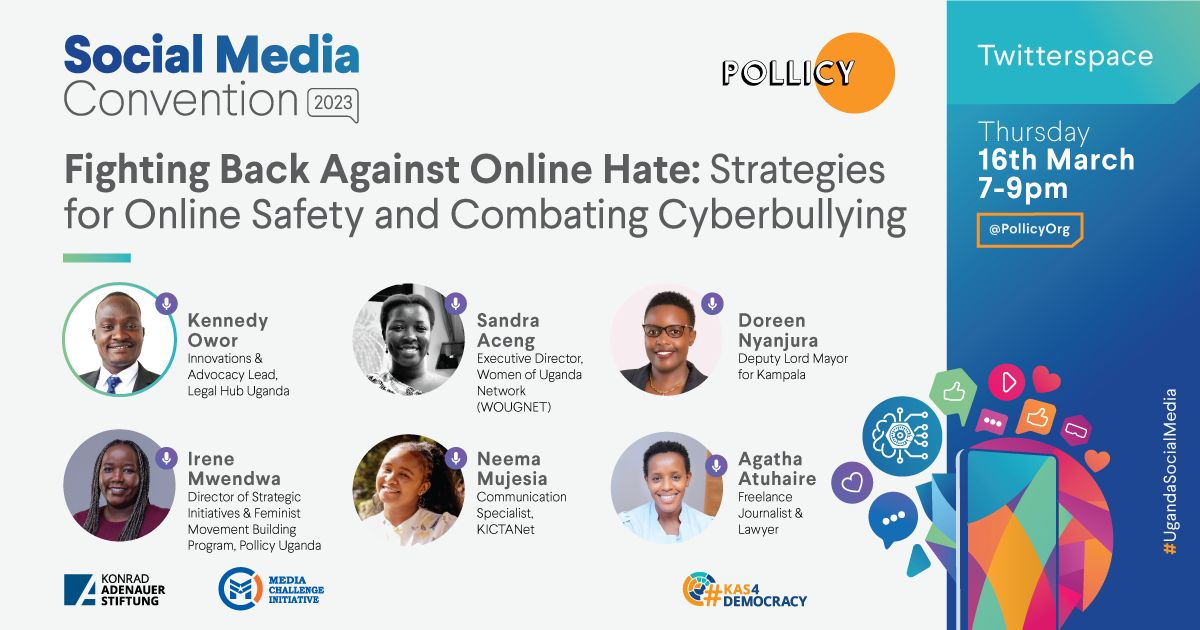Violence, persecution, and exploitation can all be exacerbated by social media. Online harassment, hate speech, and cyberbullying have become serious issues for people, communities, and organizations all around the world in recent years.
The influence of social media on real-world communities is complicated and changing at a rapid pace. It crosses international boundaries. What was once a tool for uniting communities has become increasingly politicized and militarized, with serious consequences for people’s mental health, personal safety, and online connections.
Pollicy conducted a Twitter space chat on “Strategies for Online Safety and Combating Cyberbullying” on March 16, 2023, in which KICTANet was invited to offer its perspectives on this issue of safety online as it pertains to women. Other experts drawn from Kenya and Uganda shared their experiences and strategies for combating cyberbullying. Some of the strategies include educating young people about online safety and promoting positive digital citizenship.
The discussion highlighted how hate speech and cyberbullying have had a harmful impact on both people and communities. When a woman is subjected to cyberbullying and hostility, for example, she may feel loneliness, sadness, and, in severe situations, self-harm (suicide). Women are the backbones of society, and this predicament affects not just them but also their children, families, and communities. On both levels, persons afflicted have withdrawn from social situations, lost jobs due to shame, and, in extreme cases, committed suicide due to despair. Another unintended consequence has been the loss of advocacy voices from our female politicians, as well as the abuse of free expression rights.
In order to prevent this and promote online well-being, safety precautions such as documenting and reporting violations must be put in place. This is to create awareness about problems like cyberbullying and hate speech and promote online safety. Practicing cyber hygiene by recording and reporting any suspicious activity on social media sites, as well as reporting it to the Office of the Data Protection Commissioner (ODPC), is one of the safety measures.
It is important that these conversations continue and for stakeholders to work together to create a safer online environment for everyone.
KICTANet has actively promoted the fight against cyberbullying and gender-based violence online (OGBV). The Network has created a digital inquiry kit, “Module 5: Safety of Women Online,” which raises awareness, builds capacity, and empowers people to stand up against OGBV.
Neema Mujesia is the communications intern at KICTANet. She works in the Gender Digital Rights Program and is fervent about advocating for human rights for all in the technology industry.
![]()




